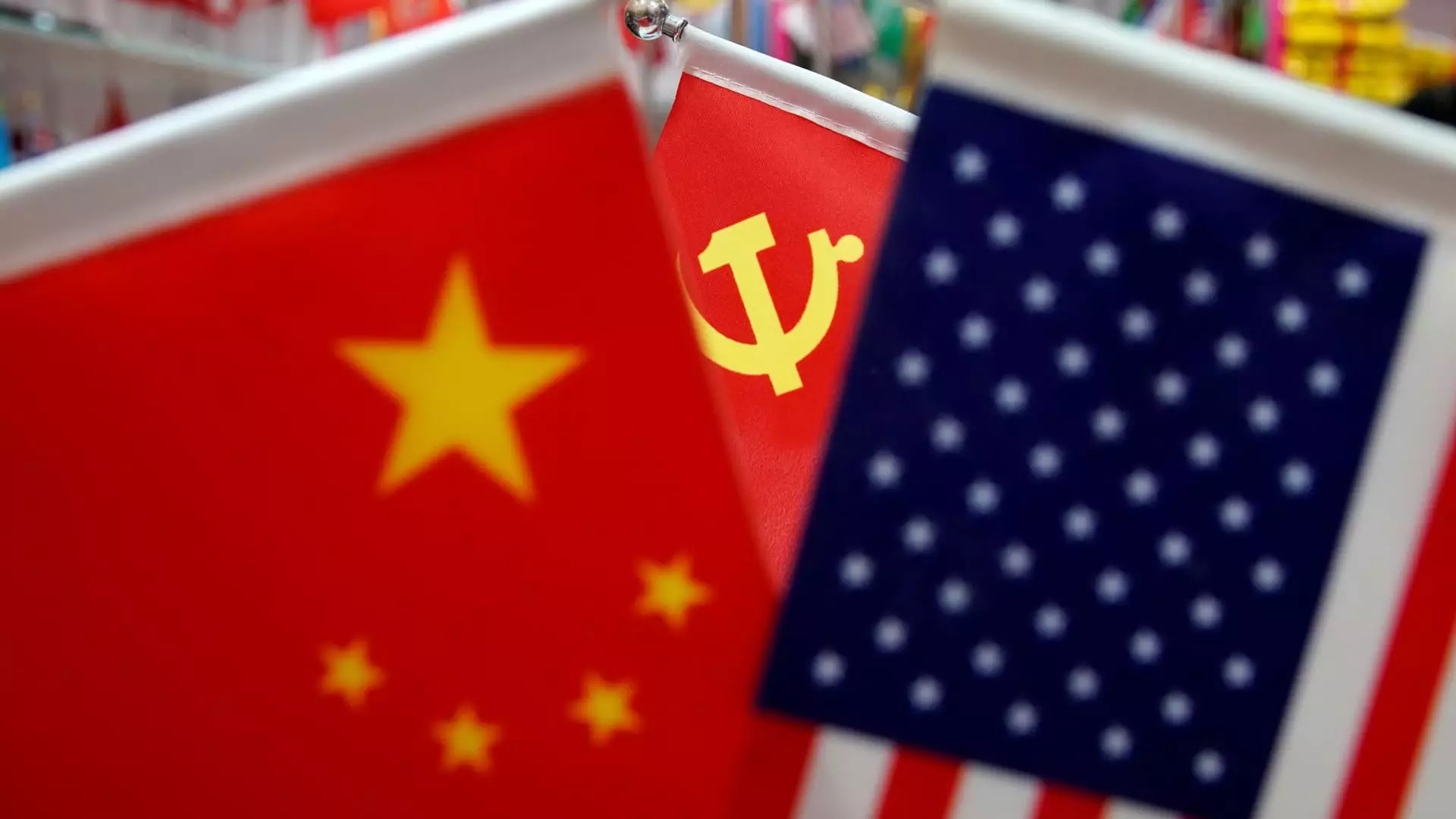In the delicate landscape of U.S.-China relations, Chinese Vice Premier He Lifeng’s recent meetings with leading financial figures from major American corporations signal a strategic attempt to fortify economic ties amid looming trade threats. As President-elect Donald Trump prepares to implement tariffs that could profoundly impact Chinese trade, Beijing’s outreach to U.S. financial executives reflects an urgent need to cultivate connections and develop a rapport with the incoming administration. This proactive approach underscores not just a defensive mechanism, but a desire to navigate the complexities of international relations through dialogue.
The strategic significance of He Lifeng’s discussions with executives from firms like BlackRock, Goldman Sachs, Citigroup, and HSBC suggests that the Chinese government is seeking to articulate a message of openness and cooperation in the finance sector. By fostering relationships with prominent representatives of American finance, China aims to soften the blow of potential protectionist policies that could disrupt market dynamics. The meetings, tracked meticulously by state media, highlight an orchestrated effort the Chinese Communist Party is making to project a cooperative image while addressing concerns over future trade and economic policies that could threaten bilateral investment.
The background for these discussions lies in the changing economic narrative in both the United States and China. With Trump’s administration expected to push for more stringent trade measures, analysts are speculating on the repercussions for both economies. Peter Alexander, the founder of Z-Ben Advisors, states that “back channeling” remains a preferred methodology for the Chinese to foster communication. This tactic not only allows for negotiations that may not be publicly visible but also builds personal relationships that could prove essential when navigating contentious trade discussions.
Clark Packard from the Cato Institute emphasizes a potential mitigating force within Trump’s cabinet, composed of numerous individuals with Wall Street backing. Their presence may temper the more aggressive trade strategies that are likely to be championed by Trump. His notes regarding concern over market reactions—which players like Goldman Sachs are keenly aware of—point to a complex interplay between policy formation and market stability, showcasing the inherent challenges that such economic strategies entail.
As the global markets react to political maneuverings, the U.S. stock market, having enjoyed substantial gains, stands at the opposite end of a spectrum from the uncertainty in Chinese stocks earlier in the year. The rebound of Chinese equities after an indication of stimulus from authorities highlights the fragile relationship between government actions and market confidence. In this light, the meetings between He Lifeng and U.S. finance bosses can be viewed as an attempt by China to project stability while simultaneously preparing for potentially adverse conditions.
Zongyuan Zoe Liu of the Council on Foreign Relations succinctly summarizes this duality, indicating that China seems to be preparing for the worst-case scenario. The Chinese government’s measures—like engaging Wall Street leaders and adjusting export policies—are tactical reactions to looming uncertainties. However, Liu warns that the capacity of financial institutions to genuinely influence the trajectory of U.S.-China relations may be limited; their primary objective remains maximizing market opportunities, irrespective of the geopolitical landscape.
State media in China often treats foreign capital inflows as endorsements of local market viability, implying a symbiotic relationship that could foster long-term investments. He Lifeng’s dialogue with high-profile executives serves as an invitation to broader foreign engagement, positioning China’s financial environment as one that welcomes outside influence while navigating domestic pressures. Analysts like Winston Ma highlight that the financing relationship between the U.S. and China has evolved into what might be regarded as the “most dynamic” aspect of their bilateral relations over the last two decades.
As both nations tread this fragile path, Ma elucidates the delicate balance that must be struck. The future of U.S.-China capital markets hinges on a constructive relationship that fosters mutual prosperity, or, conversely, risks plunging both nations into mutual assured destruction—a stark reminder of how interconnected yet precarious international finance can be in a politically charged environment.
As the U.S. approaches a new political era, China’s attempts to engage with American financial leaders suggest a calculated effort to bolster economic ties and fortify itself against possible asset yield consequences in an evolving global marketplace. The way forward is fraught with challenges, yet it is clear that the stakes are high for both nations as they navigate the impending realities of trade and investment.

